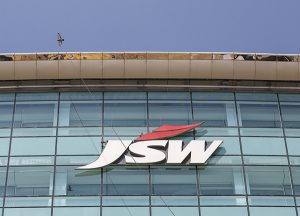Bloomberg
The European Union’s planned carbon tax on steel is a trade barrier that India and other governments will probably oppose, according to one of the biggest exporters of the alloy in the South Asian nation.
The Carbon Border Adjustment Mechanism, or CBAM, which imposes duties on certain imports from countries that don’t price carbon the way Europe does, will make it costlier for India to meet its output goals, Seshagiri Rao, joint managing director at JSW Steel Ltd, said in an interview this month.
India aims to double its steel production capacity to 300 million tons per year by 2030, for which firms like JSW will have to rely on polluting blast furnaces as they lack
the scrap supply needed for cleaner electric arc furnaces.
To mitigate the carbon footprint, the producer will either have to spend on better quality inputs and processing technology or pay a price for the carbon, he added. Limited access to gas and hydrogen fuel is also a hurdle relative to developed countries.
“Carbon price will determine if I should invest more in capex to reduce emission or pay penalty,†Rao said.
Heavily reliant on coal, India’s steel industry emits on average 2.5 tons of carbon for every ton of crude steel produced, higher than the global average of 1.8.
Beginning next year, there will be significant bipartisan support for the US to adopt its own carbon tax, according to Bloomberg Intelligence. The US in December rejected a World Trade Organisation finding that its steel tariffs violate global trade rules and these developments, taken together with existing import quotas in Europe, may jeopardise India’s expansion plans, Rao said.
 The Gulf Time Newspaper One of the finest business newspapers in the UAE brought to you by our professional writers and editors.
The Gulf Time Newspaper One of the finest business newspapers in the UAE brought to you by our professional writers and editors.
